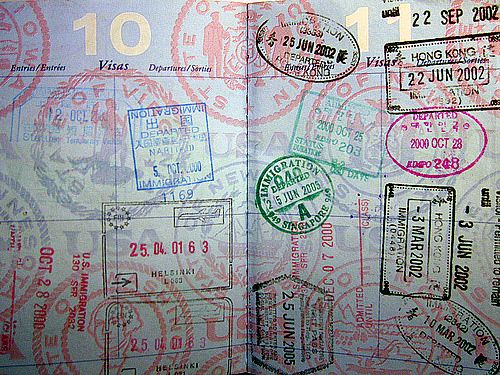 Duck of Minerva is pleased to announce the start of a four-part series of posts on teaching US Foreign Policy. The forum includes contributions from the authors of major undergraduate textbooks on U.S. foreign policy: Bruce Jentleson (Duke University), Steven Hook (Kent State), Jim McCormick (Iowa State), and James Scott (Texas Christian) and Jerel Rosati (University of South Carolina).
Duck of Minerva is pleased to announce the start of a four-part series of posts on teaching US Foreign Policy. The forum includes contributions from the authors of major undergraduate textbooks on U.S. foreign policy: Bruce Jentleson (Duke University), Steven Hook (Kent State), Jim McCormick (Iowa State), and James Scott (Texas Christian) and Jerel Rosati (University of South Carolina).
Bruce Jentleson initiated and coordinated the forum — as you can see below he has also set up a Twitter hashtag #TeachForPol to continue this discussion. In setting up the forum, he writes:
In the posts that follow, each of us lays out our pedagogical approaches structured around the following questions:
- What is the teaching philosophy that infuses our books and our own approaches to teaching U.S. foreign policy? What do we most want our students to know by the end of the course? What do we most want them to have retained over time
- What is the relationship between IR theory “-isms” and theories of foreign policy?
- How much emphasis to give to history (for the purposes of this discussion, defined as pre-Cold War U.S. foreign policy), the Cold War, and the contemporary era?
- How do we prioritize among such objectives as imparting information, developing analytic and research skills, applying and assessing theory?
- How best to integrate foreign policy politics and foreign policy strategy, i.e., the domestic level of analysis and how foreign policy is made and what foreign policy has been and is?
We invite colleagues to respond to our posts and especially convey your own ideas from your own teaching and writing. We’ve also started a Twitter hashtag, #TeachForPol.
Jon Western has spent the last fifteen years teaching IR in liberal arts colleges at Mount Holyoke College and the Five Colleges in western Massachusetts. He has an eclectic range of intellectual interests but often writes on international security, U.S. foreign policy, military intervention, and human rights. He occasionally shares his thoughts about professional life in liberal arts colleges. In his spare time he coaches middle school soccer, mentors the local high school robotics team, skis, and sails.


0 Comments